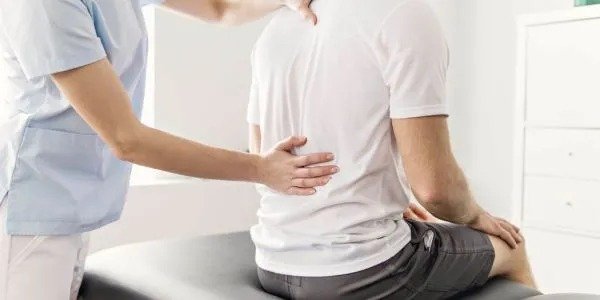Tuberculosis (TB) is commonly linked to the lungs, but it can also impact other areas of the body. When it affects the spine, the condition is known as spinal tuberculosis or Pott’s disease. In Delhi NCR, the incidence of spinal TB is rising due to delayed diagnosis, misinterpretation of back pain symptoms, and lack of awareness.

If you or someone you know is experiencing unexplained back pain, fever, weight loss, or neurological symptoms, it could be more than just a muscle strain. It may be time to consult with the best spine specialist in Delhi to explore the possibility of spinal tuberculosis and begin timely intervention.
What is Spinal Tuberculosis?
Spinal tuberculosis is a form of extrapulmonary TB that primarily affects the vertebrae and intervertebral discs. It’s caused by Mycobacterium tuberculosis, the same bacterium responsible for pulmonary TB. The disease progresses slowly but can cause serious spinal damage, neurological deficits, and even paralysis if left untreated.
How TB Affects the Spine
Unlike regular back problems, spinal TB affects the bones and soft tissues of the spine. The infection typically starts in the anterior portion of the vertebral body and spreads to adjacent vertebrae and discs. In advanced cases, it may lead to the formation of abscesses, kyphosis (humpback), and spinal cord compression.
The infection may also travel through the bloodstream or lymphatic system. That’s why accurate diagnosis and a detailed evaluation by a neck pain doctor in Delhi or a spine specialist is essential.
Stages of TB Spine
The progression of spinal tuberculosis occurs in stages. Recognizing the stage can help determine the treatment strategy and prognosis.
Stage 1: Initial Infection
- TB bacteria infect the vertebral body.
- Mild back pain and fatigue.
- No neurological symptoms.
Stage 2: Disc Space Involvement
- Infection spreads to intervertebral discs.
- Moderate back or neck pain, localized tenderness.
- MRI or CT scan may show disc space narrowing.
Stage 3: Abscess Formation
- Cold abscess develops in the paravertebral region.
- Severe pain, stiffness, and muscle spasms.
- May lead to kyphotic deformity.
Stage 4: Neurological Involvement
- Compression of the spinal cord or nerves.
- Muscle weakness, numbness, or paralysis.
- Requires urgent attention from the best doctor for cervical pain in Delhi or spine expert.
Stage 5: Deformity and Chronic Damage
- Structural damage to the spine.
- Permanent deformities like gibbus or angular kyphosis.
- Risk of lifelong disability if untreated.
Common Symptoms of Spinal Tuberculosis
Recognizing the symptoms early can significantly improve outcomes. Common signs include:
- Persistent back or neck pain
- Low-grade fever (especially in the evenings)
- Night sweats
- Loss of appetite and weight
- Difficulty walking or standing
- Muscle stiffness
- Swelling near the spine
These symptoms may mimic other spine issues. Hence, a consultation with a neck pain doctor in Delhi who is trained in differentiating TB spine from other conditions is crucial.
Risk Factors for Developing TB Spine
Some individuals are more susceptible to spinal TB, including:
- People with a history of pulmonary TB
- Immunocompromised individuals (HIV, diabetes)
- Malnourished children and adults
- People living in densely populated areas
Delhi, particularly areas like Rohini, sees a higher prevalence of such risk factors, making early detection and spinal tuberculosis treatment in Rohini Delhi critical.
Diagnosis: How is TB Spine Confirmed?
Effective diagnosis involves a combination of clinical assessment and diagnostic tools:
- X-rays: May show bone destruction or deformity.
- MRI Scan: Ideal for early detection of soft tissue involvement.
- CT Scan: Helps evaluate bone destruction.
- Biopsy or FNAC: Confirms TB infection.
- Blood Tests: Elevated ESR, CRP levels, and Mantoux test.
Patients exhibiting neurological symptoms or severe spinal deformity must be referred to the best spine specialist in Delhi for comprehensive evaluation and planning.
Treatment Options for Spinal Tuberculosis
Management of TB spine requires a multidisciplinary approach involving medication, physical therapy, and sometimes surgery.
1. Anti-Tubercular Therapy (ATT)
- First-line treatment for spinal TB.
- Consists of a combination of antibiotics for 9–12 months.
- Regular follow-ups and liver function monitoring are essential.
2. Bed Rest and Bracing
- Recommended during the acute phase.
- Spinal braces help support the spine and reduce pain.
3. Surgical Intervention
Required when:
- There’s spinal instability
- Neurological deficits are present
- Abscesses need drainage
Common procedures include:
- Spinal decompression
- Debridement
- Instrumentation and fusion
These surgeries should only be performed by highly qualified professionals. Spinal tuberculosis treatment in Rohini Delhi is available at modern facilities equipped with advanced surgical tools.
Post-Treatment Rehabilitation
Post-operative care is essential for full recovery:
- Physical therapy for mobility
- Regular imaging to monitor healing
- Nutritional support
Patients recovering from surgery or anti-tubercular therapy (ATT) are advised to adopt a healthy lifestyle, which includes adequate rest, a well-balanced diet, and gentle physical activity.
Prevention and Public Awareness
Preventing spinal TB is possible through:
- Early detection of pulmonary TB
- Completing the full course of ATT
- Educating communities about spinal TB
- Improving nutrition and sanitation
Spreading awareness in urban localities of Delhi NCR can reduce the burden of late-stage cases that require complex interventions.
When to See a Specialist
If you notice persistent spine pain, unexplained weight loss, or any signs of neurological weakness, consult a spine doctor in Delhi NCR immediately. Delaying care could lead to irreversible spinal damage.
Look for:
- Persistent symptoms despite rest and medication
- Weakness or tingling in arms/legs
- Localized swelling along the spine
These warning signs call for a comprehensive evaluation by a top spine specialist in Delhi to confirm the diagnosis and initiate timely treatment.
The Role of Lifestyle and Nutrition in Recovery
While medical treatment is central to managing spinal TB, a strong immune system and proper nutrition can support faster recovery.
- Incorporate foods high in vitamin D and calcium into your diet.
- Avoid smoking and alcohol, which may hinder recovery
- Take prescribed supplements, if needed
Patients in Delhi can consult a clinical nutritionist alongside their orthopedic care team for tailored dietary guidance to rebuild spinal health and overall immunity.Real Patient Experiences and Hope
Several patients in Delhi NCR have successfully recovered from spinal TB with early diagnosis, advanced medical care, and support from specialists. The journey may be long, but recovery is absolutely achievable.
Hospitals like Sant Paramanand are committed to excellence in spine care, providing compassionate treatment for spinal tuberculosis. From accurate diagnosis to post-rehabilitation services, their dedicated teams ensure patients get a new lease on life.
Conclusion
Spinal tuberculosis (TB), though serious, is treatable with timely diagnosis and proper care. Early symptoms like persistent back pain, fatigue, or low-grade fever are often overlooked, leading to complications such as spinal deformity or nerve damage.
In Rohini, Delhi, advanced diagnostics like MRI and expert spine specialists make early detection and treatment possible. Most cases are managed with long-term antitubercular medication, while surgery may be needed in severe cases.
If you or a loved one is struggling with chronic back pain, don’t ignore the signs. Consult a spine expert at a reputed hospital with specialized care and a strong record in treating spinal TB. Early action ensures faster recovery and a better quality of life.



